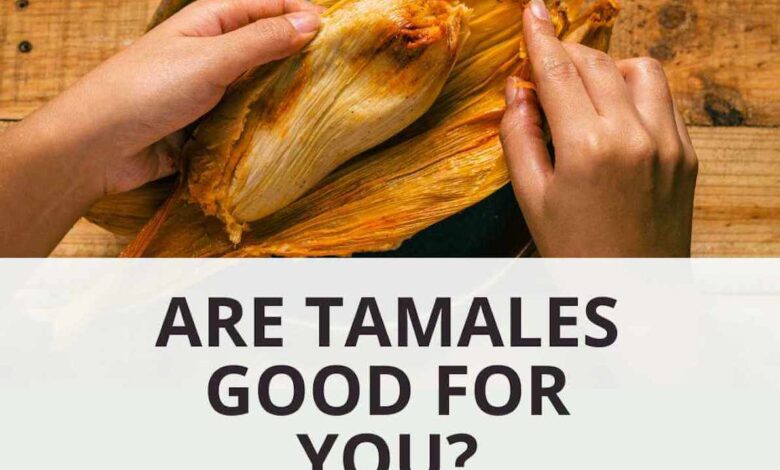Unwrapping the Truth: Are Tamales Healthy?

Tamales, a traditional Mesoamerican dish made of masa (a dough usually made from nixtamalized corn) and filled with meats, cheeses, fruits, vegetables, or chilies, have been a staple in many diets for centuries. However, in today’s health-conscious world, the question “are tamales healthy?” frequently arises. This comprehensive exploration delves into the nutritional aspects of tamales to provide a clear understanding of their health benefits and potential concerns.
Nutritional Profile of Tamales
To address “are tamales healthy?”, it’s crucial to look at their nutritional content. Tamales are a good source of carbohydrates, proteins, and, depending on the filling, various vitamins and minerals. The corn masa provides a healthy dose of fiber, while the fillings can be rich in nutrients.
Calorie Content and Portion Control
When considering “are tamales healthy?”, calorie content plays a significant role. Tamales can be calorie-dense, especially when made with lard and served with high-calorie sauces. Portion control is key to enjoying tamales as part of a balanced diet.
The Role of Filling Choices
The answer to “are tamales healthy?” largely depends on the fillings used. Lean meats, vegetables, and low-fat cheeses are healthier options compared to fatty meats and full-fat dairy products. The filling choices significantly influence the overall healthiness of tamales.
Homemade vs. Store-Bought Tamales
Homemade tamales often win the health debate in “are tamales healthy?” because you can control the ingredients and cooking methods. Store-bought tamales might contain preservatives and higher levels of sodium and fat.
Gluten-Free and Vegetarian Options
For those wondering “are tamales healthy?” particularly from a gluten-free or vegetarian perspective, tamales can be a suitable option. Corn masa is naturally gluten-free, and tamales can be easily made with vegetarian or vegan fillings.
Potential Health Benefits
In answering “are tamales healthy?”, it’s important to acknowledge their potential health benefits. When made with wholesome ingredients, tamales can provide essential nutrients and be part of a healthy diet.
Moderation and Dietary Balance
Ultimately, the response to “are tamales healthy?” comes down to moderation and dietary balance. Enjoying tamales in moderation, along with a varied and balanced diet, can allow you to relish this traditional dish without compromising health.
Conclusion
In conclusion, the question “are tamales healthy?” does not have a straightforward answer. It depends on the ingredients, preparation methods, and the overall balance of your diet. Tamales can be a healthy option if prepared with nutritious ingredients and enjoyed as part of a balanced diet. As with any food, moderation is key to reaping the benefits while managing health concerns.
—
FAQs: Understanding the Health Aspect of Tamales
1. What makes a tamale healthy or unhealthy?
– Answer: The healthiness of a tamale depends on the ingredients used, particularly the type of fillings, the amount of fat in the masa, and the cooking methods.
2. Can tamales be part of a weight loss diet?
– Answer: Yes, tamales can be part of a weight loss diet when consumed in moderation and if made with healthy, low-calorie fillings and limited added fats.
3. Are tamales suitable for a gluten-free diet?
– Answer: Yes, traditional tamales made with corn masa are naturally gluten-free, making them suitable for those on a gluten-free diet.
4. How can I make my homemade tamales healthier?
– Answer: To make healthier tamales, use lean meats or vegetable fillings, limit the use of high-fat ingredients, and opt for healthier cooking methods like steaming.
5. What are the key nutritional benefits of tamales?
– Answer: Tamales can offer nutritional benefits such as being a good source of carbohydrates for energy, dietary fiber from corn masa, and depending on the filling, protein, vitamins, and minerals.



